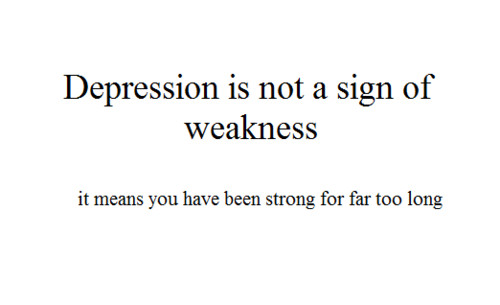 Depression has 17% lifetime prevalence for Americans and is linked to many co-morbidities such as coronary heart disease, diabetes mellitus, and stroke to name a few. There has been an increase in depression and anxiety over recent years as the struggling economy has added stressors to the lives of many people. Here are some helpful tips to try to reduce the severity of symptoms associated with depression and anxiety.
Depression has 17% lifetime prevalence for Americans and is linked to many co-morbidities such as coronary heart disease, diabetes mellitus, and stroke to name a few. There has been an increase in depression and anxiety over recent years as the struggling economy has added stressors to the lives of many people. Here are some helpful tips to try to reduce the severity of symptoms associated with depression and anxiety.
- Exercise- exercise releases natural endorphins to boost your mood and increases your energy level. It is encouraged to exercise 30 minutes most days of the week.
- Eating a healthy diet- the food we consume directly affects the way we feel physically and emotionally. Balancing protein and carbohydrates and avoiding “stress eating” or “comfort eating” is one way to increase mood and energy.
- Counseling- Finding a psychologist or psychiatrist to talk with is extremely beneficial in helping to develop coping skills to better manage your depression or anxiety. Many employers offer an assistance program through the company, check with the Human Resources Department to see if this is an option for you. Another good place to find someone to talk with is to call the member services number on your insurance card to see who is in network for your plan.
- Schedule an appointment with your health care provider to determine the most appropriate therapeutic plan for you, which may include some of the recommendations above, or possibly the initiation of medication.
While some people experience situational depression that can be improved simply by making some lifestyle changes, others struggle with depression from a genetic origin. Approximately 30% of people in the United States have a genetic mutation known as methylenetetrahydrofolate reductase (MTHFR). MTHFR interferes with the body’s ability to break down folic acid to an absorbable form and therefore alters the neurotransmitters in the brain that regulate mood. Recent studies have shown an improvement in symptoms of depression by adding folic acid supplements or increasing folate-rich foods in your diet. If you do not notice an improvement in symptoms with these adjustments mentioned above, or if your current anti-depressant seems to not be working as well, it is possible you may require a special type of folic acid.
If you ever experience thoughts of suicide or homicide call 911 immediately or go to the closest emergency department for help.
ShareMAR
